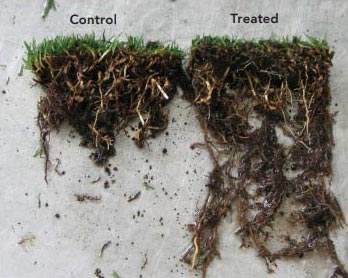FORT MYERS, FL — Mettauer Environmental is expanding its commitment to being eco-friendly by the use of a non-hazardous fertilizer alternative.
“Quantum Growth is a natural fertilizer alternative that doesn’t pollute, isn’t hazardous to the environment or wildlife, and gives you better results than fertilizer. You also wind up watering less,” says Chrissy Mettauer, owner of Mettauer Environmental, a family owned business that has been serving Southwest Florida since 2001. “It’s actually a dream, especially for property and golf course managers, because you don’t have to worry about it reaching the waterways or streets, and you only need to apply it a few times a year. It’s biotechnology in a bottle, and we are lucky to offer something of this magnitude in Southwest Florida.”
Mettauer has been named the Preferred Applicator in Lee County and Southwest Florida of all Quantum products.
Why should everyone be switching to an eco-friendly fertilizer solution?
Quantum products are made up of microorganisms and contain no GMOs, growth inhibitors or NPKs. Quantum’s naturally occurring microbes work symbiotically with plants to enhance nutrient uptake, a key to plant health which provides plants additional energy for growth, defense and reproduction. Photosynthesis is improved as well as water retention. Most importantly, Quantum doesn’t wash away with irrigation or rain. It stays put and is used efficiently by the vegetation and turf.
Have you been using traditional fertilizer? With Quantum, you would have fewer applications, improved soil, and less irrigation and pesticides.
Traditional fertilizer is applied in very high volume due to inefficient use, which means excess nutrients end up in groundwater and stormwater systems, which lead out to estuaries and coastal ecosystems.
“Going the natural fertilizer alternative way is the direction we must go in order to do our part to improve our water quality and preserve our estuaries and ecosystems,” says Mettauer.
High amounts of nitrogen and phosphorous in waterways can have a negative effect on fish and other wildlife. In addition, according to the federation of Public Interest Research Groups (PIRG), 29 popular fertilizers tested positive for 22 toxic heavy metals, including silver, nickel, selenium, thallium, and vanadium — all of which are linked directly to human health hazards.



